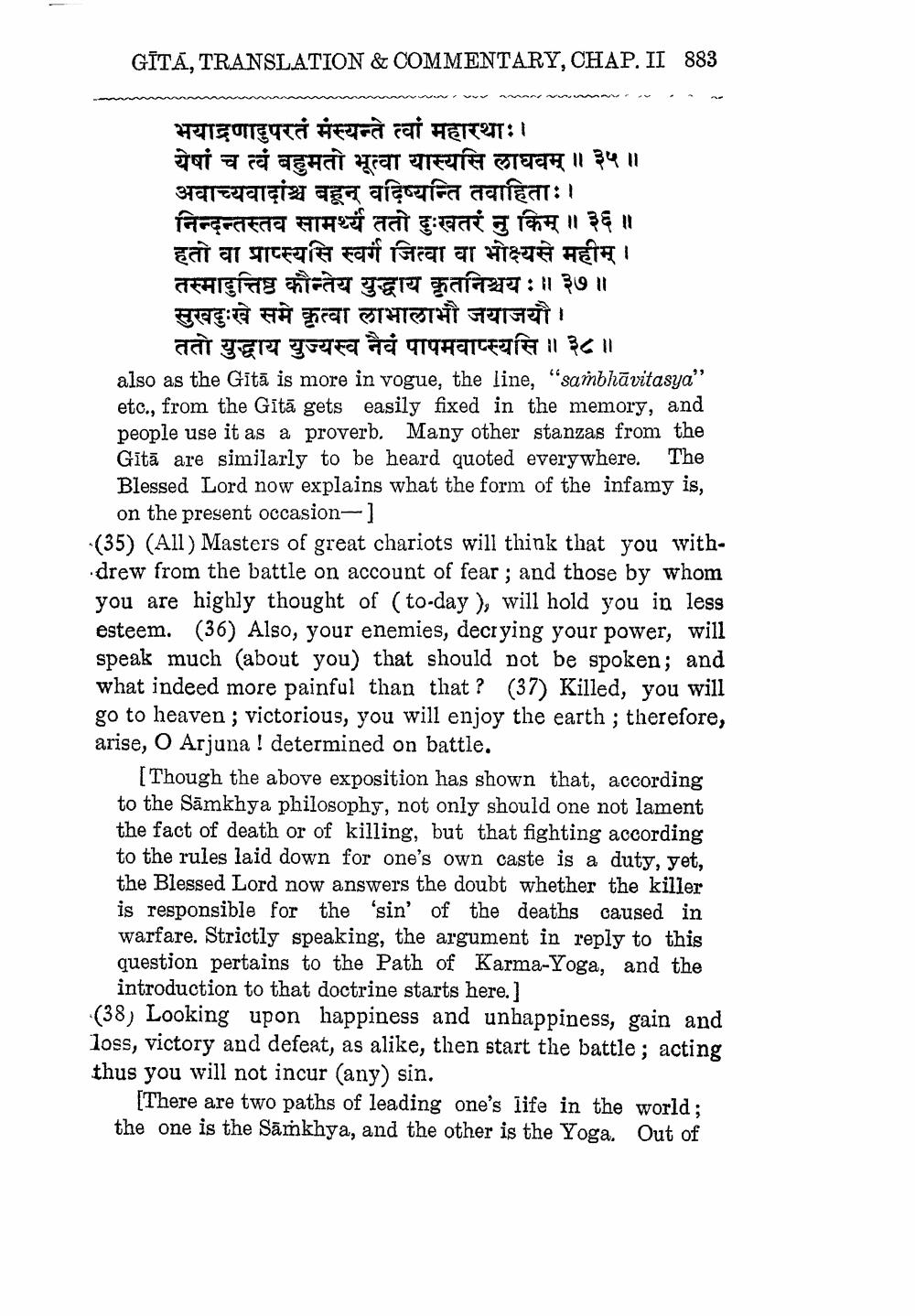________________
GĪTA, TRANSLATION & COMMENTARY, CHAP. II 883
भयाद्रणादुपरतं मंस्यन्ते त्वां महारथाः। येषां च त्वं बहुमतो भूत्वा यास्यसि लाघवम् ॥ ३५ ॥ अवाच्यवादांश्च बहून् वदिष्यन्ति तवाहिताः। निन्दन्तस्तव सामर्थ्य ततो दुःखतरं नु किम् ॥ ३६ ॥ हतो वा प्राप्स्यसि स्वर्ग जित्वा वा भोक्ष्यसे महीम् । तस्मादुत्तिष्ठ कौन्तेय युद्धाय कृतनिश्चयः॥ ३७॥ सुखदुःखे समे कृत्वा लाभालाभौ जयाजयौ।
ततो युद्धाय युज्यस्व नैवं पापमवाप्स्यसि ॥ ३८॥ also as the Gītā is more in vogue, the line, "saibhāvitasya" etc., from the Gītā gets easily fixed in the memory, and people use it as a proverb. Many other stanzas from the Gītā are similarly to be heard quoted everywhere. The Blessed Lord now explains what the form of the infamy is,
on the present occasion-1 (35) (All) Masters of great chariots will think that you withdrew from the battle on account of fear; and those by whom you are highly thought of (to-day ), will hold you in less esteem. (36) Also, your enemies, decrying your power, will speak much (about you) that should not be spoken; and what indeed more painful than that ? (37) Killed, you will go to heaven ; victorious, you will enjoy the earth; therefore, arise, O Arjuna ! determined on battle.
[Though the above exposition has shown that, according to the Samkhya philosophy, not only should one not lament the fact of death or of killing, but that fighting according to the rules laid down for one's own caste is a duty, yet, the Blessed Lord now answers the doubt whether the killer is responsible for the 'sin' of the deaths caused in warfare. Strictly speaking, the argument in reply to this question pertains to the Path of Karma-Yoga, and the
introduction to that doctrine starts here.] (38) Looking upon happiness and unhappiness, gain and loss, victory and defeat, as alike, then start the battle; acting thus you will not incur (any) sin.
[There are two paths of leading one's life in the world ; the one is the Sāmkhya, and the other is the Yoga. Out of




